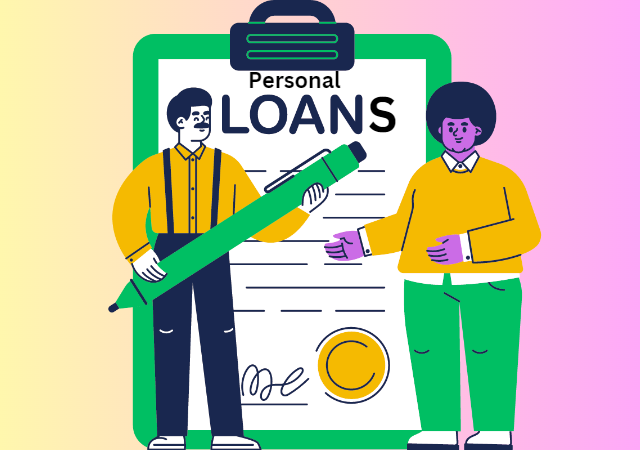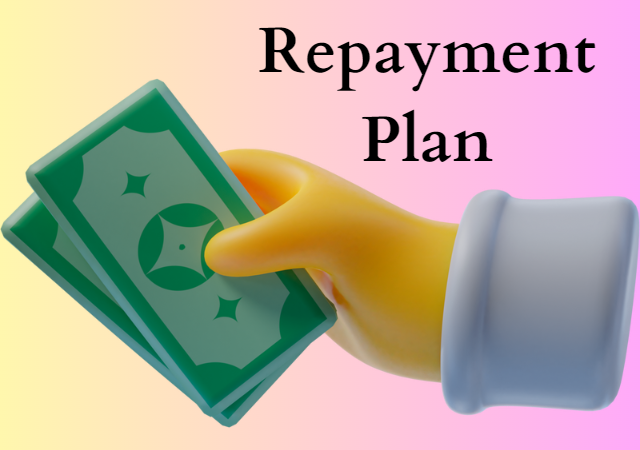Expert Advice on Leveraging Personal Loans for Startup Debt Repayment
Introduction
Starting a business can be an exhilarating endeavor, but it often comes with its fair share of financial challenges. Many entrepreneurs turn to personal loans as a means of financing their startup or overcoming initial hurdles. However, what happens when the business accumulates debt and repayment becomes a concern? In such situations, leveraging personal loans for startup debt repayment can be a viable option. In this article, we’ll cover some expert advice on how to use personal loans to repay startup debt effectively.
So, let’s delve into the world of personal loans and discover how they can be leveraged effectively for startup debt repayment.
Expert Advice on Leveraging Personal Loans for Startup Debt Repayment
Understanding Personal Loans

Before delving into the specifics of utilizing personal loans for debt repayment, it is crucial to have a clear understanding of what personal loans entail. Personal loans are a type of unsecured loan that can be used for various purposes, including debt consolidation, home repairs, or medical bills. Unlike secured loans that require collateral, personal loans are based primarily on the borrower’s creditworthiness.
The loan amount that you can borrow is typically determined by factors such as your credit score, income, and financial history. Interest rates and repayment terms can vary depending on the lender, but personal loans generally involve fixed monthly payments over a predetermined period, typically ranging from one to seven years.
Understand Your Debt

Before taking out a personal loan, it is essential to understand your startup’s debt fully. This includes identifying all your outstanding debts, such as credit card debt, loans, and lines of credit, and their interest rates and payment terms. This will give you a clear picture of your total debt and how much you need to borrow to consolidate it.
Consolidate Your Debt
Once you understand your debt, the next step is to consolidate it. Debt consolidation involves taking out a single loan to repay all your existing debts, leaving you with a single monthly payment. This can be an effective way to manage your debt, as it can simplify your finances and reduce your overall interest costs.
When consolidating your debt, it is important to consider the interest rate of the personal loan you are taking out. You want to make sure that the interest rate is lower than the interest rates of your existing debts. This will reduce your overall interest costs and make it easier to repay your debt.
Additionally, you should consider the term of the personal loan. A longer term may result in lower monthly payments, but it also means that you will be paying more in interest over the life of the loan. A shorter term will result in higher monthly payments but may save you money on interest in the long run.
Finally, it is important to consider any fees associated with the personal loan, such as origination fees or prepayment penalties. These fees can add up and increase the total cost of the loan.
Create a Repayment Plan

Once you have consolidated your debt, the next step is to create a repayment plan. A repayment plan outlines how you will repay your personal loan and how much you will need to pay each month. It is essential to create a realistic repayment plan that fits within your budget and ensures that you can make your monthly payments on time.
When creating your repayment plan, you should consider the interest rate and term of your personal loan. A longer-term loan will result in lower monthly payments, but it also means that you will be paying more in interest over the life of the loan. A shorter-term loan will result in higher monthly payments but may save you money on interest in the long run.
Additionally, you should consider your business’s cash flow and budget when creating your repayment plan. You want to make sure that you can afford to make your monthly payments on time and that you have enough money left over to cover your other business expenses.
Improve Your Credit Score

Your credit score is a critical factor in determining the interest rate and terms of your personal loan. The higher your credit score, the lower your interest rate will be, which can save you money on interest costs over the life of the loan.
To improve your credit score, you should pay all your bills on time, keep your credit utilization ratio low, and avoid opening too many new credit accounts. You should also regularly review your credit report to ensure that there are no errors or inaccuracies that could be negatively affecting your score.
Consider Alternative Financing Options
While personal loans can be a useful tool for repaying startup debt, they are not the only option available. It’s important to explore alternative financing options as well. Depending on your business’s specific needs and circumstances, you may find other options that better suit your situation.
Here are a few alternative financing options to consider:
- Small Business Administration (SBA) Loans: The SBA offers various loan programs specifically designed for small businesses. These loans often come with favorable terms and lower interest rates compared to traditional personal loans. They can be used for debt consolidation or other business purposes.
- Business Line of Credit: A business line of credit provides you with a predetermined amount of funds that you can draw from as needed. It works similarly to a credit card, where you only pay interest on the amount you borrow. This can be a flexible financing option that allows you to manage your debt while maintaining access to additional funds for ongoing business needs.
- Peer-to-Peer Lending: Peer-to-peer lending platforms connect borrowers directly with individual investors. These platforms often offer competitive interest rates and flexible repayment terms. Peer-to-peer lending can be a viable alternative to traditional personal loans, especially if you have a strong business plan and a compelling story to attract potential lenders.
- Business Credit Cards: While credit cards should be used cautiously, they can be helpful for managing short-term debt or financing smaller expenses. Look for business credit cards with low interest rates or promotional offers, such as 0% introductory APR for balance transfers. Use them strategically and responsibly to avoid high-interest charges.
- Invoice Financing or Factoring: If your business generates regular invoices, you can leverage them to access immediate cash through invoice financing or factoring. These solutions allow you to sell your outstanding invoices to a third party at a discount, providing you with immediate working capital to repay debts or fund ongoing operations.
Remember, each financing option has its own advantages and considerations. It’s crucial to thoroughly research and compare the terms, interest rates, and fees associated with each option. Consider consulting with a financial advisor or business mentor who can provide guidance based on your specific circumstances.
Diligent Financial Management
Regardless of the financing option you choose, practicing diligent financial management is essential when leveraging personal loans or any other form of debt for startup debt repayment. Here are some additional tips to keep in mind:
- Track your expenses: Maintain a comprehensive record of your business expenses. This will help you identify areas where you can reduce costs and improve your cash flow.
- Budget effectively: Create a detailed budget that outlines your monthly income and expenses. Allocate a portion of your income specifically for debt repayment to ensure that you consistently meet your obligations.
- Communicate with lenders: If you encounter financial difficulties or anticipate challenges in making loan payments, communicate with your lenders promptly. They may be willing to work with you to establish a revised payment plan or provide temporary relief.
- Seek professional advice: If you’re struggling with debt management or need guidance on financial matters, consider consulting with a financial advisor or business consultant. They can provide personalized advice based on your unique circumstances and help you make informed decisions.
Conclusion (Expert Advice on Leveraging Personal Loans for Startup Debt Repayment)
In conclusion, leveraging personal loans for startup debt repayment can be a strategic approach to managing your financial obligations. By understanding personal loans, assessing your debt situation, consolidating your debt, creating a repayment plan, improving your credit score, considering alternative financing options, and practicing diligent financial management, you can effectively leverage personal loans to repay startup debt and pave the way for financial stability and growth.
It’s important to approach personal loans with careful consideration and ensure that they align with your business’s financial health, growth prospects, and overall sustainability. Personal loans should be seen as a tool to alleviate startup debt, but it’s crucial to weigh the risks, compare terms, and explore alternative options when necessary. Seeking expert advice from financial professionals can provide valuable insights and help you navigate the complexities of debt repayment.
Remember, effective debt management requires discipline, proactive communication with lenders, and a commitment to sound financial practices. By implementing the expert advice provided in this article and staying focused on your financial goals, you can leverage personal loans strategically and propel your business towards long-term success.

My name is Rohit Vagh and I’m a content writer specializing in fashion and lifestyle. I have three years of experience in this field and have written various articles. My writing style is creative and engaging, and I strive to create content that resonates with my readers. I have a deep passion for fashion and am constantly researching the latest trends and styles to make sure my readers are up to date. I’m excited to continue my career in blogging, and I’m always looking for new opportunities in the fashion and lifestyle space.





